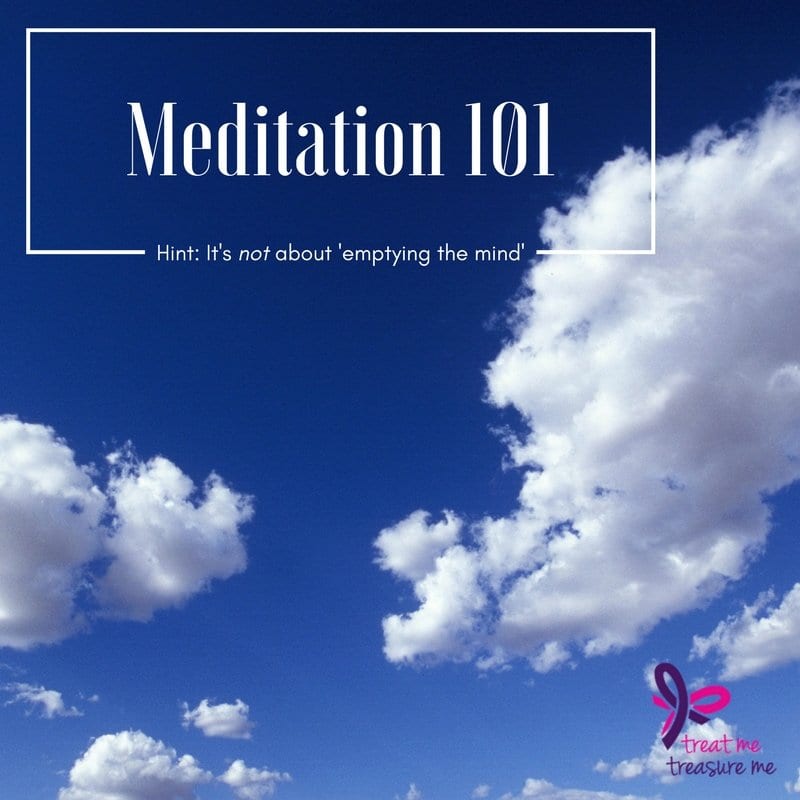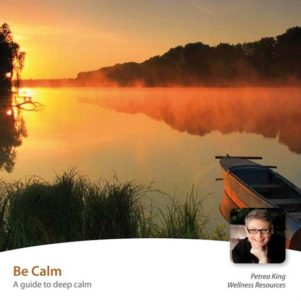Meditation 101
Yep, most people say that it’s a great idea, but they just can’t do it. It’s almost like the calm people that seem able to mediate are the very people that don’t need to! Is it chicken or egg though? Who knows, who cares? The point is that meditation comes in lots of different ‘flavours’ and it has documented emotional and physical health benefits. It’s quite the fasion at the moment. Orange isn’t the new black, it’s meditation.
So, there’s lots of different ways we can meditate, but a big misconception is that it’s all about ‘emptying the mind‘. Temping, but impractical. I am going to talk a bit about mindfulness meditation, which has become popular because its achievable, practical, portable (!) – and is not about emptying your mind.
What is mindfulness?
Mindfulness is about paying attention to something, on purpose, but not judging. In the English language, being mindful of something simply means that we have noticed and are aware of it. It’s the same in mindful meditation.
So often in life, our minds are pulling us in all directions; back to a difficult past, forward to an uncertain future or spinning in the tasks and worries of the day. So much so that we get into a sort of ‘auto pilot’. We don’t notice the people and experiences we love and care about, because we are constantly pre-occupied with what’s “next”. It’s a learnt behaviour. How many of us stare at our fascinating feet, with the wonder that a little baby does? The baby’s not worried about what’s next (don’t panic, mindfulness is not a weird foot thing….!). Mindfulness is about being at ease with the mind, not in a constant struggle to get it to think and feel differently.
The basic idea
There are different ways to learn mindfulness; but the most popular is to focus on the breath. It’s OK if you don’t like to (if you have lung problems, for example) because you can simply focus on a physical sensation like touch, taste or hearing instead (more on that in a minute). It’s simply about allowing yourself to notice your body and mind, not to judge, get caught up, tell yourself off, wonder if you can do it, plan dinner, chastise yourself about how you can’t meditate or any of that stuff. All you do is breathe (or taste, or hear, or feel, or smell – or all of them one after the other). Just notice you.
Getting started
Just sit somewhere comfy (it doesn’t need to be very quiet, but do ask not to be interrupted for a few minutes) and breathe in through your nose and out through your mouth (its ok to do in and out through your nose if you like too). Notice where the air goes, perhaps you can feel it under your nostrils and the gentle rise and fall of your abdomen. Don’t force it, just breathe gently. Notice how the chair feels against your body, how your feet feel in your shoes, what sounds you notice. Your brain will get distracted, talk to you; that’s totally normal. Once you notice that “mind chatter”, just gently bring your focus back to the breath or the sensation of touch or hearing. Sit for about 10 mins and just do that. There’s no perfect amount of time to meditate for; it’s up to you.
Other options
Using senses is great. If you are outside in the fresh air, sit for a minute (you can close your eyes or leave them open if you like) or stand. Notice the smells, the sounds or the colours and how your body feels. If you are eating a bikkie at home, close your eyes, think of the texture, the taste, the smell; immerse yourself. In a bath or shower, notice how soap feels against your skin, the fragrance, the warmth. You can meditate at any time of the day, but having a little routine (as with anything!) often helps to keep us on track.
Help – it’s not working
There’s no right or wrong. Your brain is your brain and it’s a “unique little snowflake” (!). It’s not a competition. You just sit and breathe; notice your body and mind and allow your thoughts to drift past you, without judgement. You are not your mind, you have a mind. You don’t need to be a passive vessel for every thought that your brain sends to you (including “I knew I’d be rubbish at this”). Just notice you have thoughts, and notice the breath. Imagine your thoughts are like fish swimming past, or clouds in the sky, or cars on a motorway). You can’t catch every fish, stop the cars or hold the clouds; minds are clever. This is a new idea and it takes some time to get used to relating to your mind a bit differently. But it’s worth it.
Further help
If you would like a bit more guidance, our CDs by Petrea King are great, especially when you are learning this new idea. There are also Apps such as Smiling Mind and Headspace to help.
Just find what’s right for you. Don’t over think it – just do it! J&J xx




